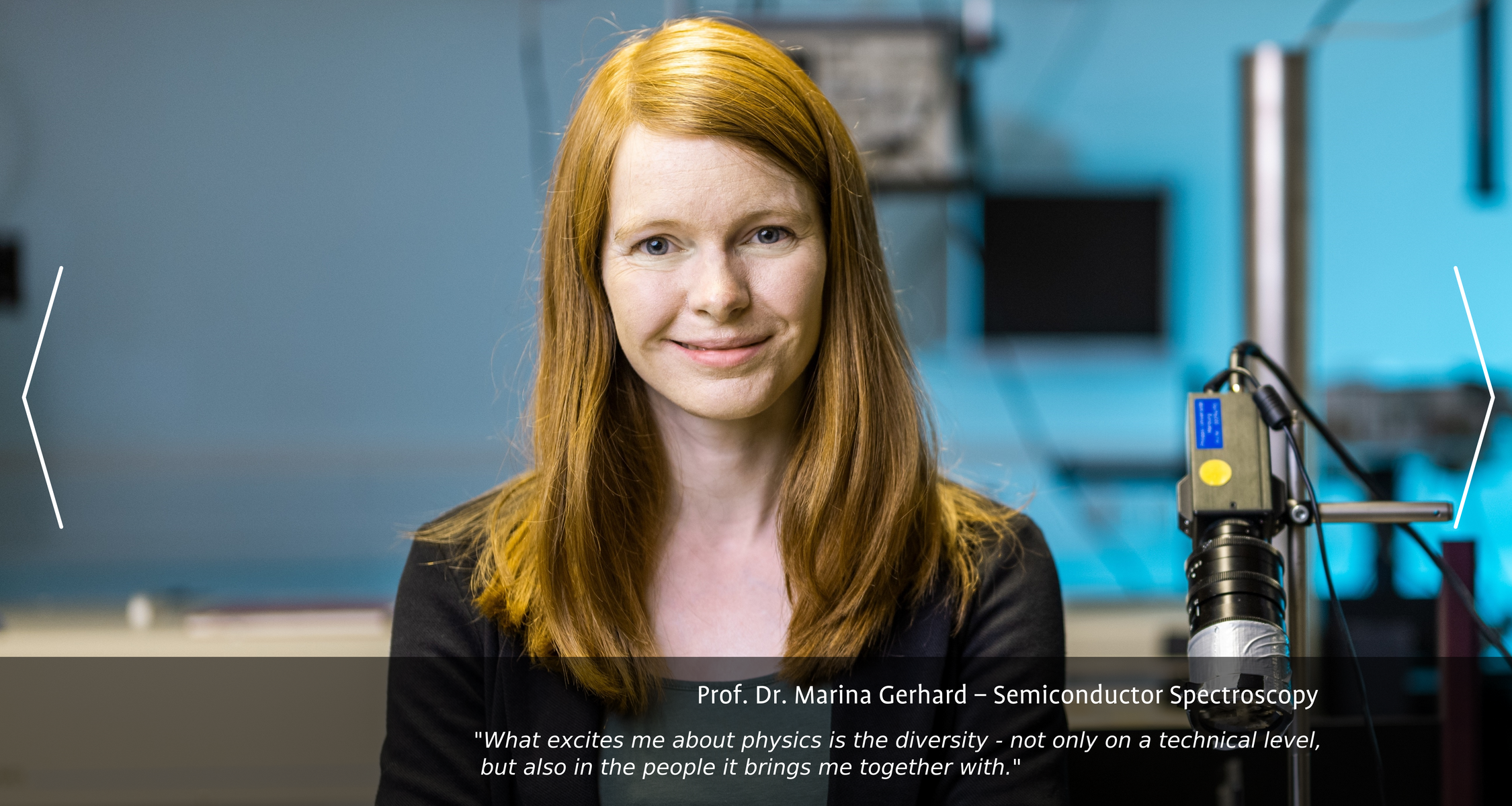Main Content
Physics degree at a glance

You want to understand the fundamental relationships and laws of nature? Then, studying physics is the right choice for you. Physics provides answers to questions about the smallest to the largest systems in nature: from elementary particles to the cosmos. New discoveries in physics broaden our horizons and influence our daily lives.
Here you will find an overview of all important information about studying physics at the Department of Physics at Philipps-Universität Marburg...
Advantages of Marburg
"Other cities have a university - Marburg is a university" they say, and that is true. The various departments are spread throughout the city and students are around everywhere.
With its beautiful historic city center, its numerous pubs and bistros, its cinema and theater culture as well as various venues for concerts, Marburg is rich in student flair. The wide range of sports offered by the university also contributes to making your time studying in Marburg a success all around.
Physics in Marburg

"Gentle beginning and research-strong closure" is the motto of our new physics program. In Marburg, the bachelor's program is designed for 8-semesters. A consecutive 2-semester master’s program focuses on the research. This new concept of “8+2” improves the transition from school to university and offers flexibility during the bachelor period, e.g. for a semester abroad. In addition to the regular bachelor's degree program in physics, the department offers two interdisciplinary bachelor's programs "Physics & Economics" and "Physics of Green Technologies", which are unique in Germany.
At our department, the distances are short and the groups are small, which enables an excellent supervision and allows you to get in contact with the professors and your fellow students quickly. Not only the members of the student council are happy to help you with questions and problems concerning your studies, but also the lecturers always have an open ear for your concerns.
Related links
Overview over study contents
In addition to knowledge of physics, analytical and solution-oriented thinking as well as a systematic approach to complex problems and their solution strategies are taught in the program. The various physics bachelor's degree programs are roughly divided into the study areas of experimental physics, theoretical physics, mathematical fundamentals, lab courses and specialization/ elective subjects. The weighting of the different sub-areas depends on the course of study. In the study programs "Physics and Economics" and "Physics of Green Technologies", classes in the field of economics or non-physical sciences take up a larger share.
Concerning the physics part, classes range from classical topics such as mechanics and electrodynamics to topics of modern research such as quantum theory and neuroscience.


Here, the bachelor’s program is split in two periods. The first period contains a basic education in math, experimental and theoretical physics and lab courses. The second period is open for specialization and deepening. Students are emphasized to select classes that suit their penchant and in this way prepare themselves for their thesis. While in the specialized bachelor’s programs “Physics and Economy” and “Physics of Green Technologies” courses from other disciplines are inherent to the programs, even in the regular program parts of the courses can be taken in non-physics disciplines (biology, chemistry, computer science, philosophy…).
Following the bachelor’s degree, you can deepen your research topic in a consecutive 2-semester master’s program. Besides the regular master’s program, we offer the english-speaking master’s program: “Functional Materials”.
Further links
Career perspectives in physics
Physicists are needed in all research areas of the natural and engineering sciences at universities and non-university research institutions as well as in industry. Even career fields that are rather unrelated to the subject offer a wide range of opportunities.

A degree in physics opens up excellent prospects for you. Physics has many overlaps with other natural sciences, so that your future work does not have to be limited to the subject of physics. Physicists are also in great demand in industry and in technical professions, such as in the automotive industry. The ability to think analytically and solve problems, both qualifications that you will acquire during your studies, will also qualify you for a profession in the IT sector, in consulting, in banks or similar.
The career prospects are excellent and job satisfaction is high, 87% of the graduates surveyed in the profession said they would study physics again.
Related links:
Apply now!
The Department of Physics in Marburg with its campus on the castle hill and its research groups and research centers, offers students a wide range of opportunities to learn physics and to conduct research at the cutting edge. You are looking for a challenging education at a department with an excellent reputation and expect very good supervision - then you have made a very good choice with the Department of Physics in Marburg!